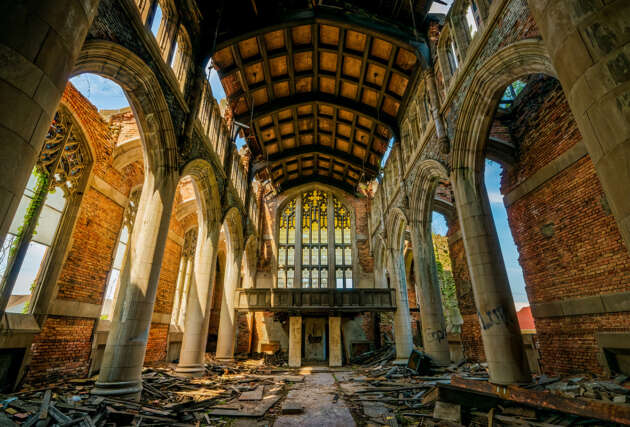Share This Article
G
ary, Indiana isn’t just a place on a map. It’s a parable, a living metaphor—of greatness born in industry, bruised by injustice, yet pregnant with prophetic potential. Like every timeless tale, Gary’s history unfolds as a hero’s journey. From Moses to Marvel, from Harriet to Wakanda, the pattern is clear: birth, fall, and return. Gary’s story is no different.
Act I: The Birth–A City of Purpose
In 1906, Gary was founded by U.S. Steel as a model city—an audacious experiment in American industrial might. Named for Elbert H. Gary, a titan of capitalism, the city quickly became a magnet for those seeking opportunity:
-
Black families fleeing the Deep South during the Great Migration
-
Immigrants searching for new beginnings
-
Workers whose labor would build the steel that built America
Gary forged the nation’s infrastructure.
Gary birthed the Jackson 5, Deniece Williams, and countless dreamers.
Gary made history when Richard Hatcher became the first Black mayor of a major U.S. city.
From the start, Gary was more than geography. It was a seed of possibility.
Act II: The Fall–A City Wounded
But every hero’s journey encounters struggle. Gary’s came with fire and shaking:
-
Deindustrialization stripped jobs and dignity
-
White flight hollowed neighborhoods
-
Racism weaponized redlining, disinvestment, and shame
-
National media painted Gary as a symbol of blight instead of brilliance
Gary became a mirror of America’s broken promises.
Too often, stories about Gary are rooted in deficit, not dignity.
Lisa Bennett
And yet—even as buildings crumbled, voices rose.
Educators like Earline Rogers shaped generations.
Artists like Ernest Thomas brought Gary to the screen.
Athletes like Darius Garland put the city back on the map.
Activists like Congresswoman Katie Hall wrote justice into law.
The soul of Gary never left. It was just buried—beneath ashes.
Act III: The Return–A City Remembering Itself
Now, Gary is awakening. Not because a factory is reopening. Not because an outsider declared it worthy. But because the people of Gary are reclaiming her story.
Dreamers, educators, builders, and artists are not rebuilding Gary as it was. They are revealing the Gary that has always been.
This story doesn’t end in decay. It rises in legacy. It breathes through murals, voices, and youth ignited by purpose.
The Spiritual Frame
The prophet Ezekiel was asked, “Can these dry bones live?” Ezekiel 37:3. He looked over a valley of ruins—a once-great nation fallen into despair.
Gary is that valley. But you are Ezekiel. And this movement—Greatness of Gary—is your prophetic utterance.
“So I prophesied as He commanded me, and breath entered them; they came to life and stood up—a vast army.” Ezekiel 37:10
You are breathing life into what the world thought was dead. Too often, stories about Gary are rooted in deficit, not dignity.
The DNA of Gary
If Gary were a person, her DNA would carry:
-
Resilience – You can’t kill a city born in fire.
-
Revolution – She elected the first Black mayor.
-
Rebirth – She’s not done yet.
A Revelation, Not Just a Campaign
The Greatness of Gary is more than marketing. It is revelation.
It’s the city remembering who she is.
It’s the people reclaiming their story.
It’s the world discovering that greatness forged in steel, fire, and pressure cannot be erased.
Gary was built on steel. But her greatness? That was built to last.



